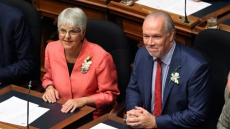Are Canadians ready for a Prime Minister with a turban? Any political observer will answer in the affirmative based on conclusions drawn from the voting behaviour of Canadians.
The key variable for decision making has been the quality of party leadership and the agenda of the political parties. At the same time, however, the voting population of Canada has not made decisions based on the religion/identity of a leader. Instead, the focus has always been on the substance of policy proposals being advocated and advanced by our leaders.

It is here that Jagmeet Singh has departed from the Canadian tradition. Earning fame in modelling with a turban and appearing on flashy fashion magazines, Jagmeet Singh has become an icon of vanity fair politicians and tabloid media.
GQ magazine, which describes itself as definitive men’s magazine, portrayed Singh as ‘the most stylish’. Fashion industry discovered from New York based turbaned model Ahluwalia’s appearances that even racist backlash is good for marketing to the millennial generation. Jagmeet Singh is the latest icon in this fashion trend.

The ‘most stylish’ politician is also the most medievalist in his ideas, from advocacy of a theocratic Sikh state to the defence of Burqa for Muslim women. In Muslim societies and states, one can never find a Social-Democrat or a Liberal advocating the ideas of Burqa for Women and strict Sharia laws to oppress women, in particular and the society, in general.
This honour belongs exclusively to the Social-Democrats and the Liberals of Western democracies. Surprisingly, they are in agreement with the likes of the Talibans and ISIS fanatics in oppressing women and keeping them in permanent slavery.

This kind of medievalism is the result of ‘identity politics’. The issue based politics is being replaced by ‘identity based’ politics; thus, as a result, Jagmeet Singh does not have to express opinions on traditional social-democratic values like child and senior’s poverty, unemployment, underemployment, women’s equality, rising costs of post-secondary education, affordability in housing sector and, in general, the challenges and struggles of ordinary working Canadians in the face of rising debts, changing economy and declining spending on the social safety network.
The most important aspect of life for him is symbols of Sikhism, which he displays to appear in fashion magazines and to earn titles of the most stylish man.
Politics is about ‘conflict resolution’ and authoritative allocation of resources. We have regional differences, not only between provinces but also within provinces- metro cities versus rural Canada. People living in both the metro areas and rural areas face different challenges and demand different solutions.

Women continue to face challenges of equality in the work place and harsh reality of physical and emotional violence within families, in particular, and in larger society, in general. Canada recorded more than 2800 opioid related deaths last year. The youth of Jagmeet Singh’s own community have fallen victims to drug and gang violence; yet his focus is entirely on symbols of his religious identity.
It took several centuries of struggle by Renaissance and Enlightenment philosophers and activists to end the rule of religious authorities. The American and French revolutions ushered an era of secular states. People took a sigh of relief with new constitutional freedoms, which recognized individual liberties and the right to conscience.

Finally, they were free to believe in any religion or no religion at all. As rational actors, individuals had the liberty to live their lives according to their own choices. No one could dictate to them- what to wear, what to eat, what to say, what to pray and how to pray?
The rights and liberties being enjoyed by all Canadian, including Jagmeet Singh and other religious minorities, are results of secularization of politics highlighted by the Charter of Rights and Freedoms. A Christian Canada governed by medieval religious orthodoxy would not have allowed Sikhs, Muslims, Buddhists and others to practice their religious traditions. We are all thankful to the secular traditions of Canada for life of liberties and freedoms.

As a result of this secularization, Canadians have shown no bias in their voting behaviour on the basis of one’s race, religion, language, gender or sexual orientation. Is Jagmeet Singh’s clamour about his Sikh identity a game changer? Will we vote on Jagmeet Singh’s Sikh identity, Justin Trudeau and Andrew Scheer’s Catholic identity, and Elizabeth May’s Anglican/Protestant identity in 2019? That will be a sad day for Canada.






